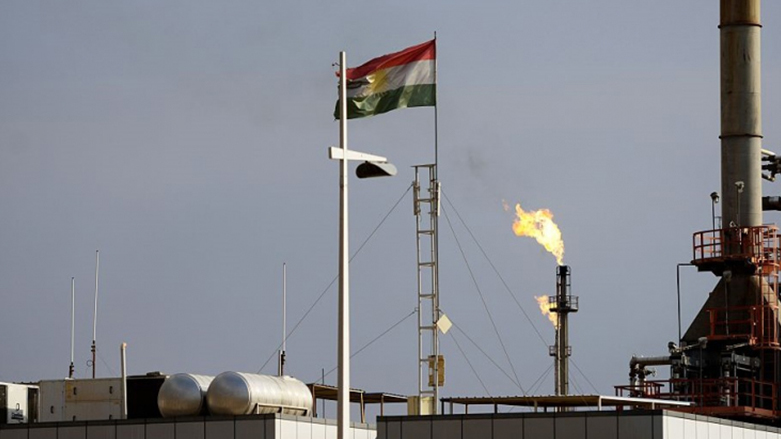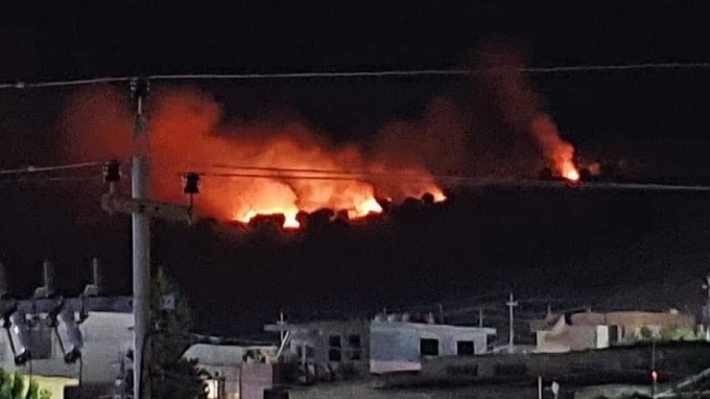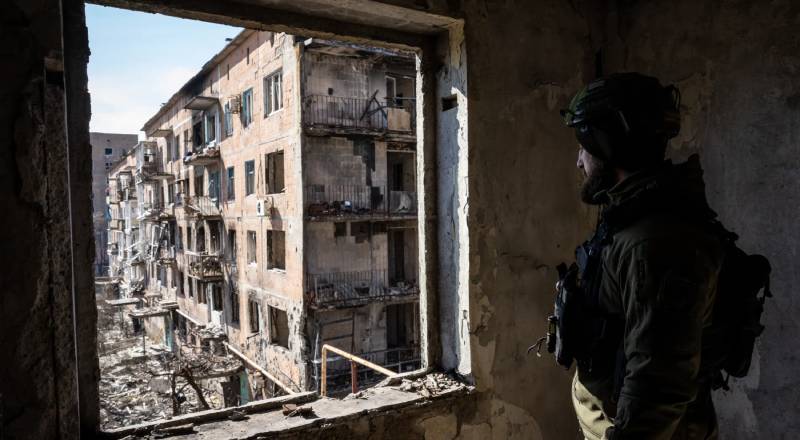Turkey’s ambition in Iraq play out in Kirkuk

2023-10-05 17:00:06 - From: Shafaq News
Shafaq News / In late August, Iraqi Prime Minister Mohammed Shia’ al-Sudani stirred the pot of existing tensions when he ordered the evacuation of the Iraqi military’s Joint Operations Command headquarters in Kirkuk and gave it back to the Kurdistan Democratic Party (KDP)—the dominant political party in Iraqi Kurdistan. Outrage sparked protests by Sunni Arab tribes, Turkmen factions, and Iran-friendly Shia militia Asa’ib Ahl al-Haq. The tensions further escalated when Kurdish supporters confronted the protesters. The fallout was followed by a heavy-handed security intervention, four tragic deaths, and a citywide curfew. With local elections looming on December 18, the heightened KDP influence irked many actors, including the Patriotic Union of Kurdistan (PUK).
The decision was ultimately tied to a broader political quid pro quo. To solidify a government under Sudani in Baghdad in 2022, Kurdish Regional Government (KRG) backing was crucial. Reports suggest that returning the contentious headquarters was part of this political bargain, and was peppered with other Kurdish perks. The approaching Iraqi provincial elections have escalated tensions in Kirkuk—a resource-rich and diverse province populated by Kurds, Arabs, and Turkmen. As a key regional player, Turkey is aiming to assert its influence in shaping the politics between the KRG and the central government in Baghdad. Following the recent protests, Turkey was quick to associate the Kirkuk tensions with operations by the Kurdistan Workers’ Party (PKK), which Turkey considers a terrorist organization. It is no secret that the KDP’s rival, the PUK, not only has better relations with Iran but also has a cooperative rapport with the PKK. Thus, Turkish support to the KRG is part of its larger geopolitical calculations.
Upcoming provincial elections
Kirkuk has long been at the heart of ethnic tensions in Iraq. Until 2014, Kurds had a strong hold on Kirkuk, taking full control when Iraqi forces, threatened by the so-called Islamic State (IS), pulled back. But since 2017, after the KRG pursued an independence referendum, Iraqi forces have reasserted Baghdad’s control, driving out Kurdish security forces. As the upcoming provincial elections draw near, tensions have been reignited. It is notable that Kirkuk has not conducted any provincial council elections since 2005. After the fall of Saddam Hussein, Iraq’s 2005 Constitution established provincial councils, which have since become influential entities within the country. These councils play pivotal roles, notably in budget allocations for vital sectors like education, health, and transport.
In the pre-election atmosphere, the Kurdish parties are keen on reclaiming their lost influence. However, a unified front appears elusive. In a bid to consolidate Kurdish forces, 13 local parties urged a collective approach for the elections. While the PUK initially agreed, it later opted to ally with the Kurdistan Communist Party. Additionally, the Kurdistan Islamic Union (KIU) and the Kurdistan Justice Group announced their own separate coalition, the “Touch of Kirkuk.”
Turkey, with its growing energy needs, perceives Kirkuk as a pivotal partner in energy security. The Kirkuk-Ceyhan oil pipeline, stretching between Iraq and Turkey, is emblematic of this partnership. However, the control of and revenue distribution from this pipeline have been a contentious issue, especially during periods when the KRG has tried to bypass Baghdad and directly export oil to Turkey. Such moves have often been viewed by the Iraqi central government as a violation of its sovereignty, leading to political disputes. To put it in the simplest terms, Turkey’s overlapping interests with the KRG are the elephant in the room.
Overlapping interests in Kirkuk
Since 2014, the central government in Baghdad has consistently maintained that Iraqi Kurds have been exporting Iraqi oil through Turkey, a transaction carried out without the requisite approvals from the central authorities. This issue was escalated to an international forum, where the Paris-based International Chamber of Commerce ultimately ruled in favor of Baghdad, imposing a significant penalty of $1.5 billion on Turkey.
In retaliation, Turkey halted the transport of approximately 400,000 barrels per day of Kurdish crude oil, along with an additional 75,000 barrels per day originating from the Kirkuk fields. Subsequently, Turkey has proposed conditions for the resumption of these exports from the Ceyhan port: primarily, the annulment of the aforementioned fine and the withdrawal of a separate pending arbitration case against it. As a consequence of these actions, the Kurdish region has reportedly experienced a revenue deficit of roughly $5 billion since the halt in exports.
Earlier in the year, negotiations between representatives of the KRG and Baghdad suggested a monthly oil revenue allocation of $900 million to the Kurdistan Region. However, the actual disbursed amount has been considerably less than the agreed upon sum. Moreover, Kurdish officials have voiced concerns over the daily dispatch of 85,000 barrels of crude to Baghdad without receiving the corresponding payments. Most recently, KRG Prime Minister Masrour Barzani sent a private letter to US President Joe Biden warning that the very structural and economic integrity of the Kurdistan Region is at risk.
Ankara has already signaled that it will restart the oil flow in the near future. Yet given that Baghdad is also feeling the financial pain of the stoppage, the Turkish government aims to use the issue as a bargaining chip. Turkey also has the upper hand in a water-sharing dispute, which remains at the top of Baghdad’s list of demands from Ankara. Iraqi leaders have long asserted that Turkish dams are reducing their country’s water supply, asking for a fair allocation agreement to benefit the vital Tigris and Euphrates rivers.
Using its upper hand, Turkey expects Iraq to designate the PKK as a “terrorist” organization. Baghdad finds Turkey’s demands unrealistic given that the latter’s increased armed operations inside Iraqi soil have deeply disturbed many, including the Shia militias that repeatedly bombed the Turkish military base near Mosul. Ankara has highlighted the PKK’s threat to legitimize its operations deeper in Iraq and Syria, and has doubled its pressure on the KRG to collaborate against the PKK. Although the Barzani administration has acquiesced to Turkish demands, Baghdad appears divided on the PKK issue. Given the high level of tensions between Turkey and Iraqi Shia militias, Ankara is seeking Baghdad’s help to convince the militias to cease their cooperation with the PKK in the Sinjar region next to the Syrian border.
In fact, it is the Iraq-Syria nexus that gives Turkey its upper hand over the Iraqi government. Pro-Turkey and pro-Iran groups, although marching to the beat of different drums, find harmony in their shared desire to focus local tribes’ fight on the Kurdish-led Syrian Democratic Forces (SDF), effectively diminishing US influence in Syria.
The Syria Connection
The recent escalation of violence in Syria’s Deir Ezzor provides a window through which to analyze the Iraq-Syria nexus and Turkey’s regional politics. The Arab-majority province, rich in resources and bordering Iraq, is divided by the Euphrates River and inhabited by numerous local tribal communities. Some of these tribal fighters had previously allied with the SDF in the fight against IS. Given Turkey’s hostilities with the Syrian Kurds, Turkish state media outlets depicted the recent clashes between local Arab tribes and Kurdish-led SDF fighters as a rightful revolution against SDF oppression. Despite being on opposite sides in the war, Damascus and Ankara have united in their support for the rebellious tribes. Similar to Turkey’s labeling, Syrian Foreign Minister Faisal Mekdad called Syrian Kurds in the SDF “terrorist allies” of the United States, vowing to liberate Deir Ezzor.
Turkish state media, however, skips over the fact that Turkey’s role is more than one of spectator to this dynamic. With the spiraling violence in Deir Ezzor, Turkish-backed groups launched concurrent attacks against Kurdish targets in northern Syria. This surge in violence was not a sudden outburst; rather, it was the ominous crescendo of tensions that have been silently digging their roots deeper for months. Ankara still lends its support to the remnants of Syrian rebels, arming them and guiding them in their continued resistance against the SDF. In eastern Syria, Turkey and Iran—and Iran’s Shia militias—are united by a common thread: a shared opposition to the US role in Syria. It is this silent agreement that fans the flames of conflict in areas east of the Euphrates, where tribes are increasingly resistant to SDF rule.
Thus, the Turkish strategy in Iraq’s Kirkuk Governorate is inseparable from the Syrian scene. Turkey aims to find a negotiable path with the pro-Iran militias in Kirkuk and Sinjar over the PKK issue. From Baghdad’s perspective, however, a nuanced approach appears most useful. In today’s geopolitical context, the Syrian Kurds may be adversaries of the Shia militias in Syria; but in the case of a possible withdrawal of US forces from Syria, the PKK presence in eastern Syria would be an asset for Iraq rather than a threat. The Iraqi central government and the Shia militias may find the PKK to be a bulwark against a potential IS resurgence, a check against the KRG, and an asset in negotiating with Turkey. In fact, this is partially what has been occurring in Baghdad’s relations with the PKK’s Iraqi branches.
The mismatch between Turkey and Iraq’s respective expectations also explains why Turkey is aware that its pressure over Baghdad on the PKK issue should be wielded with a simultaneous effort to support Erbil’s deliberations in Kirkuk. As the KRG seeks immediate economic help from Washington, Turkey aims to benefit most from the Erbil-Baghdad oil revenue contention. Ankara views the economic vulnerability of the KRG as an opportunity to strengthen its influence in northern Iraq, positioning itself as a key ally and benefactor to Erbil.
Meanwhile, Baghdad, caught in the crosshairs of regional power plays and internal economic challenges, finds itself navigating a delicate path of asserting national sovereignty while accommodating the competing interests of powerful neighbors and internal factions. In this intricate dance of power, alliances, and interests, the US role becomes pivotal. Washington is tasked not just with maintaining the balance of power but also with ensuring that the dangerous mix of economic woes, ethnic divisions, and regional rivalries does not combust into a broader conflict that could engulf the already volatile region. The intricate diplomacy and strategic engagements of the coming months will be emblematic of the multifaceted challenges and opportunities.
Where Might Washington Stand?
With its oil-rich land, cultural and ethnic diversity, and strategic positioning, Kirkuk is indeed a microcosm of the broader complexities and challenges that encapsulate American foreign policy in the Middle East. Baghdad’s reclaiming of Kirkuk in 2017 as punishment for the Kurdish independence referendum was the watershed moment to observe Washington’s long-term strategy. For Kurds, the United States’ reticence in favor of Baghdad was a betrayal; for the Iraqi central government, it was a reassurance of America’s commitment to Iraqi unity.
Since 2017, the escalating tone of the Turkish-Iranian rivalry in northern Iraq has exploited Kurdish schisms and further destabilized Iraqi Kurdistan. The current oil revenue crisis that is suffocating Iraqi Kurdistan will not serve American interests. The US has a vested interest in a stable, secure, and prosperous Kurdistan region, given its strategic geopolitical position and its role as a reliable partner in the fight against extremist groups. Economic instability, compounded by regional rivalries, threatens to erode the gains made in security and governance, opening potential vacuums that can be exploited by resurgent extremist elements. Washington is also cognizant of the implications of intensified Turkish-Iranian competition in the region. This not only exacerbates internal divisions among the Kurds but also has the potential to spur wider regional instability, undermining US efforts to foster a stable, unified, and democratic Iraq.
(Arab Center Washington DC)



